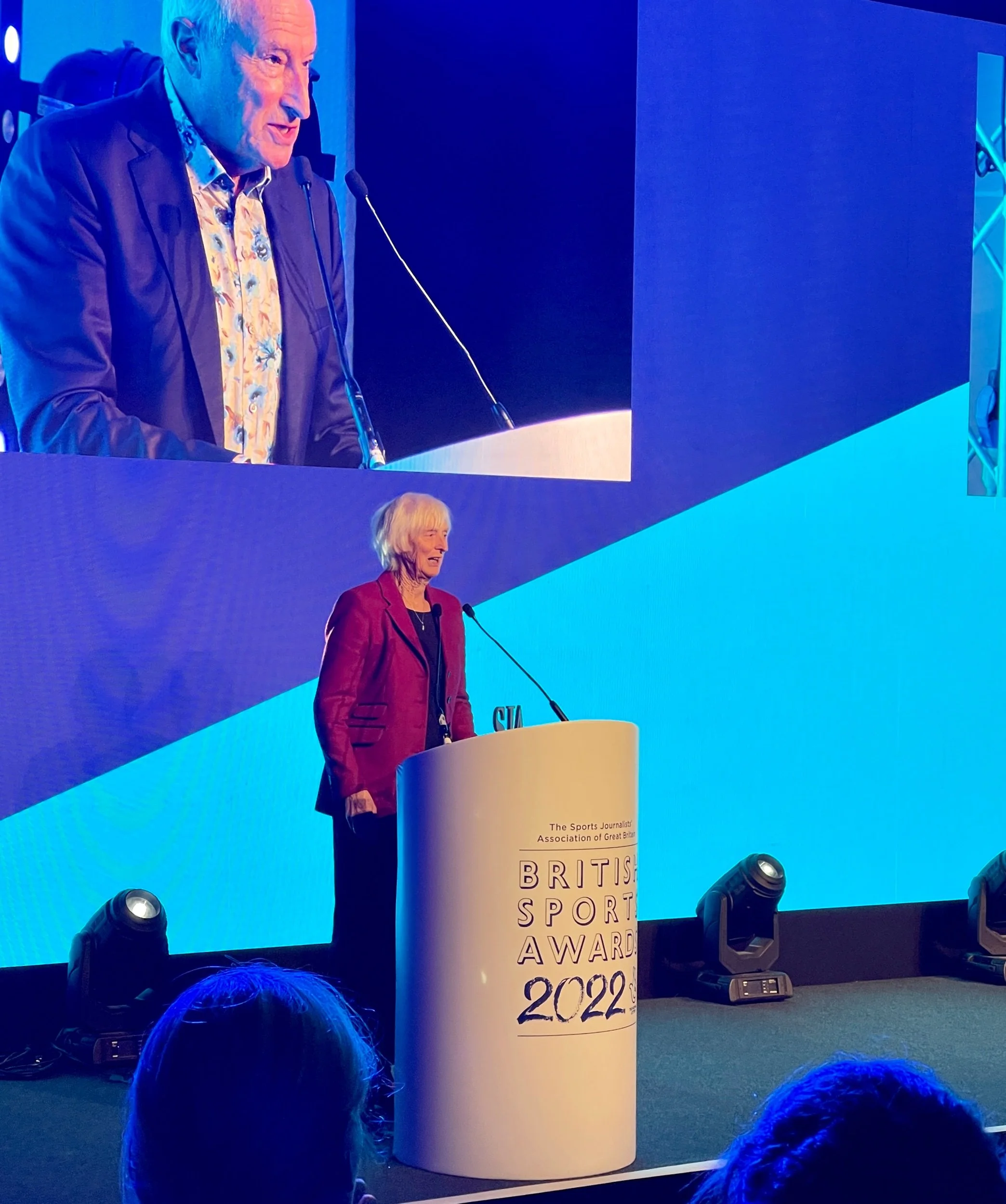The Impact of Local Government Funding Cuts on Public Services
Local government is responsible for delivering a range of vital public services, such as social care, housing, education, transport, waste management and libraries. However, these services have been severely affected by funding cuts from central government over the past decade.
Like millions I am excited by what AI can mean for society, but still remain wary so I have given it a go.
Below is the text of a blog I asked it to write on Devolution deals. Not exactly what I wanted but it took me 5 seconds to ask and about 10 seconds to produce!
What do you think?
A phrase that grates on me regularly is ‘sport X is at the heart of our local community’
I particularly hear it about sports clubs, gyms, leisure centres etc in my work. As you know I love sport and I do believe for some people it is a vital and important part of their lives. But so are many other community activities. The majority of the population do not belong to a sports club or go to watch sport.
What we mean about wellbeing and leaving the world better than you find it.... this TED talk sums up what we mean better than any blog
There is a theme shining through this blog series - Wellbeing and happiness policy making
I often admit that happiness sounds too ‘wishy washy’ for some serious policy makers - David Cameron suffered the usual jokes when he talked about the happiness index.
But as this blog from our friends at the State of Life shows, it is not just a few people talking about this in the abstract. It is a real tangible HMT Treasury Green Book Thing!
A new gold standard for measurement and evaluation, plus praise for the new WELLBY measure — State of life
Sadly too many recent conversations with friends and colleagues have been focussed around an increasing level of uncertainty and the frustration that goes with this. Slow decision making and 'silence' have replaced the chaos of the last few years from central government.
We all know that "Change is the only constant" but it doesn't make it much better for organisations or individuals so uncertain about their future. I personally don't mind the challenge of change - in fact I welcome it. The world is far from perfect so most of the time I am campaigning and calling for change! I can't complain when it then becomes uncomfortable along the way.
In sport the #unitingthemovment strategy is a welcome change of direction. Unless there are some painful changes for traditional partners, tackling inequalities and injustice won't happen. So change is a good thing.
The Chancellor Jeremey Hunt caused a stir recently when he suggested that the Over 50s who had left the workforce since Brexit/the pandemic should get off the Gold Course and back to work!
As somebody who is over 50, out of work and not on the golf course I read this with interest. I was in fact looking after my physical and mental wellbeing at the time on a walking holiday in the Peak District at the time.
There are two competing policy areas of personal interest here for me mixed up this rather crass statement. Wellbeing and Economic
We use the word inspirational in sporting circles a little too often for my liking. I know I am guilty of this!
Yesterday Baroness Sue Campbell picked up another award for her contribution to sport at the SJA Awards ceremony. And I can’t think of anybody else I have worked with since I met her in a small office at Loughborough Univerity in the mid 90s as a hopeful parliamentary candidate, that has had such an influence on me and the entire sports sector as Sue.
Right from the start of my brief economic development career I have been passionate about genuine regional economic devolution. We remain one of the most centralised countries in the world. I think my second question at PMQs was urging the Prime Minister to speed up delivery of the Regional Assemblies! Sadly, that policy came to nothing. But in recent years Mayoral authorities have captured the imagination.
If you look at many successful similar economies, the regional disparities are less obvious because of genuine regional economic power and devolved government.
Over the coming months and years however, devolution and levelling up will be a large part of our national and local conversation. Of course, there are geographies, personalities and politics involved so the skill is to work through this together to find a common solution.
We are going to hear a lot about ‘Growth’ over the next year.
Hers is an excellent short explainer/ Blog from Chatham House. It is a Think Tank so I assume they are now classed as one fo the enemies of growth for trying to think more widely about what is is and how you go aobut measuring it and designing policies to make it work for everyone!
Why it is time to change the narrative around growth | Chatham House – International Affairs Think Tank
I see you are busy?
Are you busy?
We know that so many of our conversations these days revolve around how busy we are. We wear our busyness as a badge of honour. It has become our latest status symbol.
As part of the series on the Sports Think Tank on the 2012 London Games Legacy we have been surveying the views of leaders across the sports sector
I have been slowly moving towards retirement for some time - largely stalled by Covid. But it has finally happened.
This month SajeImpact transitions from my ‘Business’ to a website and lifestyle dedicated to campaigning for all those issues we have been working on over the last 12 years - inactivity, wellbeing poverty, inequality and injustice.
We will be carrying on, but without many of our lovely clients.
Depending on your age the 1st May 1997 may be significant or may mean absolutely nothing. It was of course the day that Labour won its landslide victory in the general election and for the next 13 years changed my life.
So much has been written about the period of the New Labour government and I have thousands of words dedicated to my time in Parliament on my old websites.
But today at SajeImpact the reflection is more about those big changes that mean your life takes a completely different direction. I certainly wouldn’t be doing what I do now without that victory in 1997. I have often wondered where I would be.
I am a natural sceptic.
That makes me sound a little negative I am sure in may minds. We have somehow created a world in which dominant, certain and strongly held views are considered to be worth following.
Even when I was an MP I was fascinated by the certainty of my colleagues on every imaginable subject. I will still young and from a school system that didn’t really teach absolute certainty (I have now discovered of course their certainty is more often than not arrogance!)
Right from the start we’ve been in the back foot. As soon as we allowed Johnson and his government to call basic health protection ’Restrictions’ and the lifting of these as freedom - one part of society had captured the language of lockdown and Covid.
The prime minister’s pledge to scrap legally enforced isolation for people in England with Covid-19 flies in the face of basic infectious disease management, which tells us to avoid infecting other people when you are infectious. It is a basic public health protection, like others we have in daily life: speed limits on roads, the banning of smoking indoors, and laws against drink driving. These limit our freedoms to a certain extent, but we have accepted that “infringement” in order to have a safer and healthier society.
I set myself a challenge of reading and learning from Thought Pieces weekly. I picked up this one today from DEMOS and do believe it is an undervalued public perspective.
We are a divided nation. The last decade in particular has exposed these deep divisions within our society and culture. Since the 2016 Brexit vote more of this anger has been expressed vocally on social media and on the streets.
During the Covid-19 pandemic a new division has arisen - with a vocal minority protesting against vaccines and lockdown measures.
The most beautiful guide to the Danish custom of hygge, the everyday life philosophy for better living.
Hygge is a feeling of belonging and warmth, a moment of comfort and contentment. This beautiful little book will help you to find hygge and embrace it every day. Make a pot of coffee, relax in your favourite chair and discover for yourself how life is better with hygge.
Does your salary mean you’re rich? And what makes you upper, middle or working class? We ask the British public





















